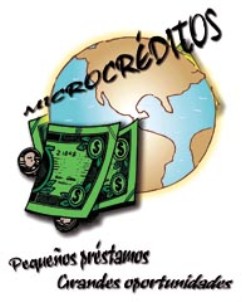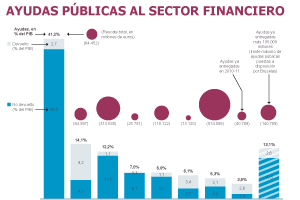- Análisis comparativo de los servicios microfinancieros en el mundo
- La justicia social depende de la creación de oportunidades de iniciativa privada en igualdad de oportunidades
Credit Suisse se ha sumado a las empresas bancarias interesadas en promover el microcrédito y a estos efectos ha anunciado su respaldo financiero a las actividades caritativas de Accion International, una ONG descrita como "institución sin fines de lucro dedicada a crear oportunidades económicas conectando a las personas con las herramientas financieras que necesitan para mejorar su calidad de vida".
Accion International se ha dedicado a promover las microfinanzas desde el primer microcrédito otorgado en 1973 y ha formado durante los siguientes 40 años 62 instituciones microfinancieras en 31 países de África, Asia, América Latina y también Estados Unidos, otorgando créditos por un valor total de más de 300 millones de dólares.
Los microcréditos son cantidades pequeñas, frecuentemente de menos de US$1000, otorgadas a personas que intentan abrir o ampliar pequeños o nacientes negocios y se concenden a un interés muy bajo. Puede ser un puesto de frutas y verduras o una pequeña tienda de reparar zapatos o de costura, entre muchas otras iniciativas cuyos créditos suelen aprobarse en estos casos.
La metodología del microcrédito comprende una multitud de actividades involucradas en el crédito que incluyen las ventas, la selección y el estudio del cliente, el proceso la solicitud y aprobación, la supervisión del pago, y la administración de la mora y la cartera.
Muhammad Yunus, un bengalí de 72 años, fue el primero que se atrevió a poner en práctica el concepto del microcrédito en 1976, ideado por el pakistaní Dr. Akhter Hameed Khan, concentrando su actividad en aquellas personas humildes que no pueden solicitar un préstamo bancario tradicional y basado en la teoría conocida como "Círculo Vicioso de la pobreza" del economista sueco Ragnar Nurkse (1907-1959), explicada por primera vez en su libro "Problemas de formación de capital en los países en vías de desarrollo". Con el propósito de aplicar la idea del Dr. Khan y la teoría de Nurkse, Yunis fundó el Banco Grameen, que hoy día cuenta con más de 2,200 sucursales y más de 20,000 empleados.
- Hits: 3671

 July 14.─ The crisis has taught people a lot about the banking industry and the thought processes of its leaders. These lessons can be distilled into four golden rules.
July 14.─ The crisis has taught people a lot about the banking industry and the thought processes of its leaders. These lessons can be distilled into four golden rules. just want to share with you an excellent article on the Cuban healthcare by Lucía Newman reporter for Al Jazzera. Al Jazeera is finishing its activities in Cuba. Aparently the information on the truths and the tales of the healthcare is very difficult for the Cuban Government.
just want to share with you an excellent article on the Cuban healthcare by Lucía Newman reporter for Al Jazzera. Al Jazeera is finishing its activities in Cuba. Aparently the information on the truths and the tales of the healthcare is very difficult for the Cuban Government. 